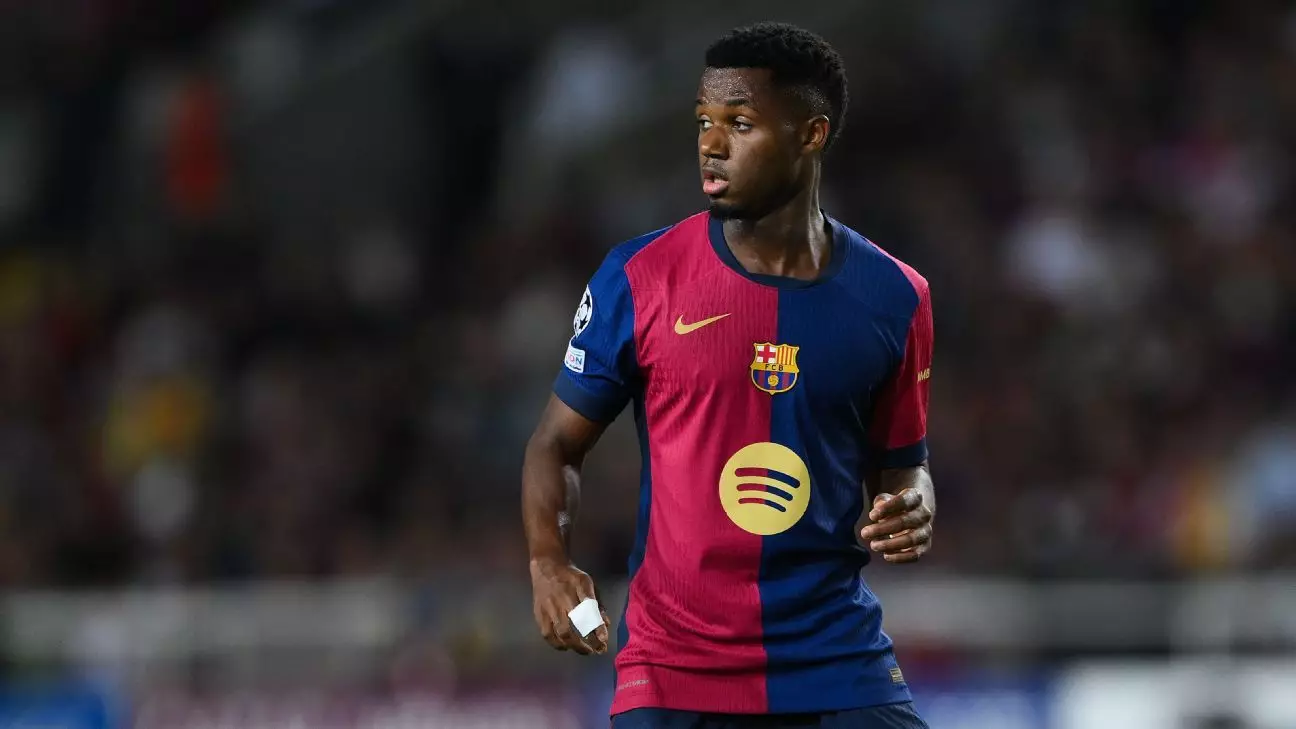The winter transfer window is a crucial period for football clubs in Europe, often seen as an opportunity to rectify mistakes made during the summer and bolster squads for a successful second half of the season. As anticipation builds among fans and clubs alike, discussions surrounding potential player movements continue to heat up, while various rumors swirl regarding possible deals and strategic shifts within teams. This article delves into some of the latest transfer news, shedding light on the maneuvers of prominent clubs like Barcelona, Manchester United, and Juventus, and juxtaposing their financial strategies and player needs against the backdrop of imminent moves.
One of the most talked-about situations is that of Ansu Fati at Barcelona. Following a season marred by disappointment during his loan at Brighton & Hove Albion, Fati finds himself at a crossroads at just 21 years of age. Reports indicate that Barcelona is considering a winter loan for the young winger, contingent upon their ability to secure a replacement. The hindrance stems from Fati’s injury during pre-season, which has severely limited his playing time to a mere 28 minutes this season—26 of which came during a lopsided victory against Young Boys.
Barcelona’s reluctance to part ways with Fati earlier in the summer stemmed from their significant difficulties in scouting a suitable winger who would fit within their financial constraints. This conundrum reveals the dual nature of modern football, where on-pitch decisions intertwine with financial acumen. With the January transfer window approaching, Barcelona is faced with the pressing question of how to balance their aspirations alongside the need to allow Fati the opportunity to regain his form somewhere else.
Meanwhile, Manchester United is grappling with a different type of challenge regarding Alejandro Garnacho. The 20-year-old forward has expressed frustration due to limited game time under Erik ten Hag, leading to speculation about his future at Old Trafford. However, reports suggest that it would take a substantial fee—amounting to over £70 million—for United to even entertain the notion of selling him.
This scenario exposes the complexity of player management within elite clubs, especially in light of Garnacho’s own ambitions, which reportedly include dreams of playing for Real Madrid. United’s strategy is evidently one of rigidity; they seek to retain young talents to build a formidable squad for the foreseeable future. This echoes the sentiment of many clubs today—investing heavily in youth while strategizing around high potential outlay without compromising the team’s long-term vision.
Juventus finds itself in a precarious situation with Paul Pogba, whose recent doping ban has been reduced to 18 months. The club is reportedly considering a winter exit for the midfielder, indicating a willingness to recalibrate their wage budget. Furthermore, this opens up the prospect of Pogba starting fresh elsewhere, potentially reigniting his career away from the pressures of Turin.
On another front, Juventus is keeping an eye on the transfer market concerning younger center-backs, including Ajax’s Jorrel Hato and Maxence Lacroix, despite the latter recently joining Crystal Palace. The Bianconeri’s strategic shift reflects a larger trend in football, where clubs are often looking to invest in youth to mitigate risks associated with older players and exorbitant salaries.
As the winter transfer window looms on the horizon, it becomes evident that clubs across Europe are more inclined than ever to rethink their approaches in player acquisitions and sales. The dual pressures of performance on the pitch and the necessity for sound financial management are leading teams to evaluate their rosters critically.
The situation for clubs like Barcelona, Manchester United, and Juventus exemplifies the transformative nature of football finance in the modern era. While the roster decisions made now can have immediate implications for the ongoing season, the longer-term ramifications on club culture, player morale, and future strategy will be just as vital to monitor. Ultimately, the forthcoming winter transfer window may not only bring about significant changes in personnel but could also signify shifting philosophies as clubs navigate this complex environment.

